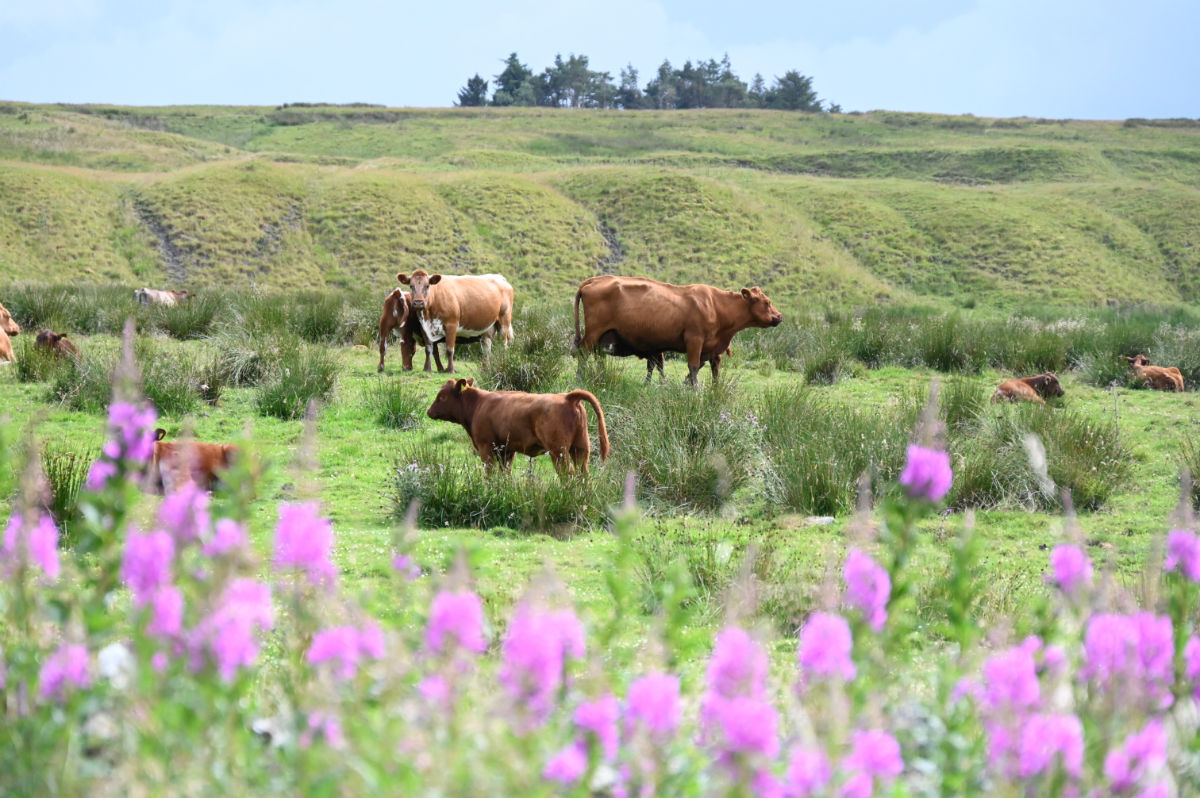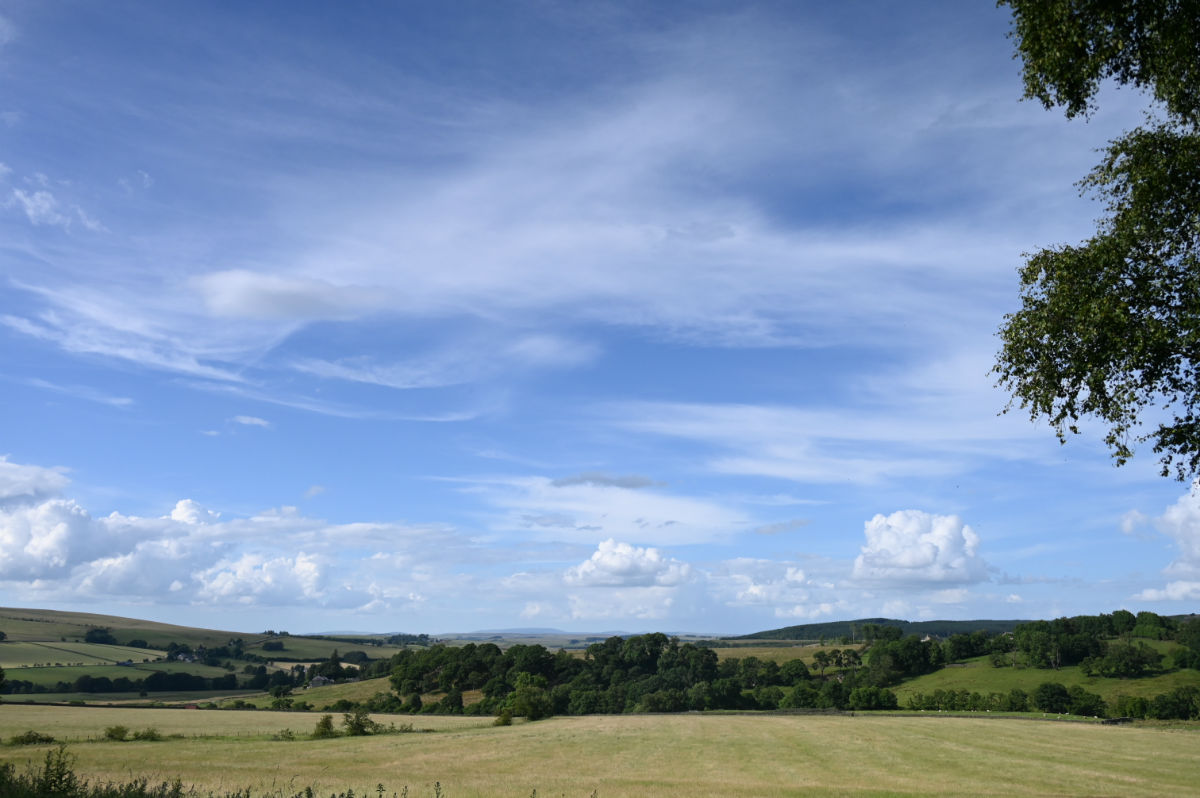[blog-archive-images]
When Groundswell started in 2016 it was a niche event, just a group of regenerative farmers meeting in a field on a Hertfordshire farm. This year’s Groundswell on July 2nd and 3rd was a ‘Regenerative Agriculture Festival’ with an estimated 10,000 visitors. On day one Prince William stopped by and the ‘grandfather of regenerative ag’, Gabe Brown, US farmer from North Dakota and author of ‘Dirt to Soil’ gave the keynote speech.
DEFRA secretary Steve Reed visited on day two, and it seems that many journalists left the tent after he had announced that the SFI (Sustainable Farming Initiative) which pays farmers for implementing ‘nature friendly practices’, would reopen next year. Helena Horton, the Guardian’s environment reporter, however must have stayed on.
“Plan to boost nature could end production at some upland farms” reads the headline of her article in Friday’s Guardian.
The title of the online version spells things out even clearer:
“English farms could be taken out of food production to boost nature, says minister”.
According to Horton, both, farm subsidy programmes and the soon to be published land use plan “would be aimed at increasing food production in the most productive areas and decreasing or completely removing it in the least productive. In reality, this means many upland farmers may be incentivised to stop farming. He <Reed> said his land use framework ‘envisions taking some of the least productive land out of food production, but supporting the more productive land to increase production’. Reed said this was so “you maintain outputs, or even increase outputs while increasing the space for nature”.
To say this at a regenerative agriculture festival takes some chutzpah.
Nature or food?
The assumption at DEFRA seems to be that there is a divide between nature on one side and agriculture on the other. The job of farmers is to produce food. And there is help at hand to increase production: agrichemical companies supply pesticides for ‘crop protection’ and chemical fertilizer; the government passed the Precision Breeding Act, which allows the use of gene editing techniques on plants and animals. And subsidies for the odd hedge or flower margin along the field can even make industrial ag look ‘nature friendly’.
Steve Reed sounds as if he was channelling his inner Andrea Leadsom, first DEFRA secretary after the Brexit referendum in 2016. “It would make so much more sense if those with the big fields do the sheep, and those with the hill farms do the butterflies”, she had said on July 14th, 2016.
Isn’t meat food?
Under Reed’s plans, many hill and upland farmers will have no option but to sell up and get out of farming. They farm land that is unsuitable for grow grains, but pastures and permanent grassland are ideal for raising livestock. Ruminants such as sheep and cattle are able to do what we can’t: they can live off grass, which the microbes in their stomachs convert into the food that sustains them. The meat from grass-fed animals is nutrient dense, providing high levels of ‘good’ fatty acids such as omega-3 fatty acids, as well as minerals, vitamins and antioxidants.
Visit an upland farm and talk to a livestock farmer who manages the land under a Higher Tier Stewardship scheme. Such grasslands are functioning ecosystems in their own right: rich in plant biodiversity and habitat for numerous bird species, insects and small mammals.
Then drive into the hills and spot the slopes that are no longer grazed by animals because the farmers had to give up. Grasslands have co-evolved with ruminants over millennia and once sheep and cattle are no longer there to graze, bracken, reeds and sedges take over. That, too, is of course ‘nature’, but is it the landscape we want? Our landscapes have been shaped and managed through farming for centuries and ‘rewilding’ doesn’t bring back wilderness. Instead farmed/grazed land becomes brush and prone to soil erosion.
Farming with nature
And that’s just the environment… not to mention the abject misery, despair, sense of loss and failure this approach brings to hill and upland farmers, who will be forced to give up land they have often cared for over many generations.
If only Steve Reed had taken the time to tour Groundswell and meet Gabe Brown. On his farm outside of Bismarck, Brown grows food and lots of it: grains, meat, vegetables, fruit, honey… On Radio 4’s Farming Today programme he explained what regenerative agriculture is: “In my mind, the definition of regenerative agriculture is farming in synchrony with nature to repair, rebuild, revitalise and restore ecosystem function, beginning with all life in the soil and moving to all life above the soil”.
Marianne Landzettel is a journalist writing and blogging about food, farming and agricultural policies in the UK, the US, continental Europe and South Asia. She worked for the BBC World Service and German Public Radio for close to 30 years. Follow her on X at @M_Landzettel and m.landzettel on Instagram





